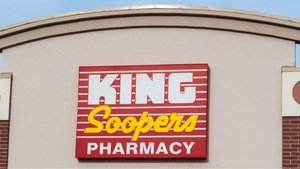How to Ace a Health Inspection and Keep Consumers Safe From IllnessHow to Ace a Health Inspection and Keep Consumers Safe From Illness
Sustainable, recyclable plastic dunnage racks are also compliant with grocery industry standards for sanitation against foodborne illnesses and will not rust like aluminum.
November 8, 2019

Sponsored by Masonways Indestructible Plastics, LLC
Being in the food industry means being subject to regular health department inspections. Not storing perishable foods properly and getting caught off-guard can not only affect business but can also result in unexpected fines or even being forced to close a site’s doors until conditions improve, resulting in a loss of revenue.
One fast and affordable solution is to keep all food items off the floor to meet regulations for food safety. Enter the versatile dunnage rack—the perfect platform for storing perishable foods and display products in the store or outdoors. Elevated dunnage rack bases keep food products safe and secure, preventing bacteria and other contaminants from coming into contact with food. Also, the bases are vented for proper air circulation, allowing air to flow. MasonWays dunnage racks help stores avoid costly health department fines thanks to their unique construction.
MasonWays has many sizes to fit specific space requirements. The brand’s racks are NSF approved, heavy-duty and produced with authorized USDA materials. Dunnage racks are ideal for storage and merchandising of larger bulky items and are sanitary because they’re manufactured with polyethylene plastic with added UV anti-microbial protection. Sustainable, recyclable plastic dunnage racks are also compliant with grocery industry standards for sanitation against foodborne illnesses and will not rust like aluminum.
MasonWays products carry a 10-year warranty and will not corrode from food acids. Bases are impervious to weather, chemicals and cleaners and are economically priced and easy to clean. The racks’ one-piece, seamless construction—with smooth corners for safety—is temperature-resistant from minus 20 degrees Fahrenheit to 180 degrees Fahrenheit, making the racks ideal for use in coolers, freezers, back rooms and food preparation areas.
Today, allergy awareness is important in the food preparation industry. The most effective way to prevent cross-contamination is to use separate preparation areas and utensils for non-allergen foods, creating a “safe space.” That way, the kitchen team can feel confident that the meals they prepare are safe for all customers to enjoy. MasonWays responded to this need by developing its Allergen Awareness dunnage racks, which are purple. The racks’ purple hue designates that a specific tool or piece of cookware is not to be used with any of the eight most common allergens: milk, eggs, peanuts, tree nuts, wheat, soy, fish and shellfish. MasonWays bases come in a full range of colors. However, stores can use red bases and label them "Meat Only" or use green bases and label them "Produce Only." When implementing a HACCP program, it’s easy to color-coordinate bases and prep tools so there’s no risk of cross-contamination. Bases can also be color-matched to a store’s interior with logos, branding and any graphics desired for display merchandising.
You May Also Like




